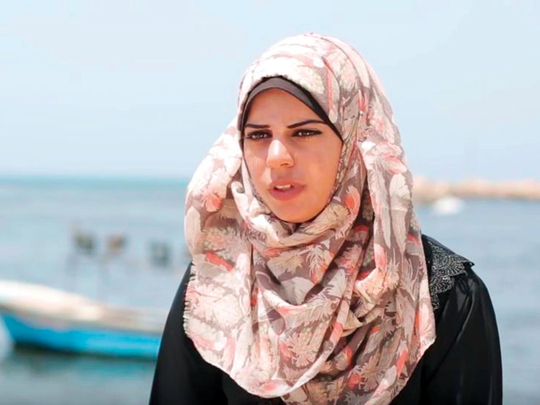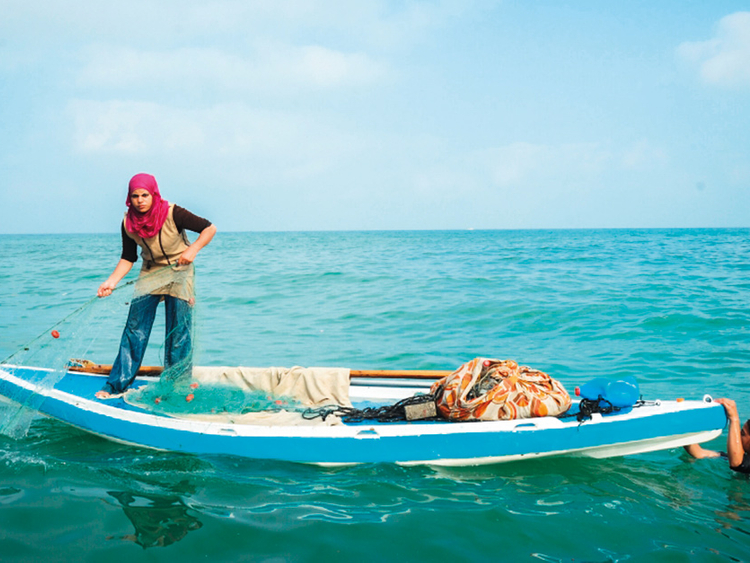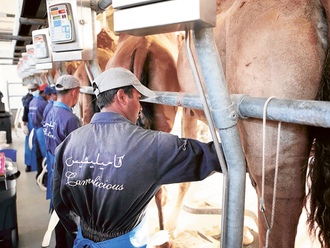
Gaza: With the world’s highest unemployment rate at 42 per cent, it is practically impossible to find a job in Gaza.
More so, only 15 per cent of women work compared to 71 per cent of men.
However, more and more women have decided to enter male-dominated professions not only out of necessity but also to change society’s perceptions of what women are capable of. Madline Kullab is one of these women.
The 23-year-old woman from the Al Shati’i refugee camp is the only fisherwoman in Gaza.
Kullab’s first experience at sea was when she was only six when her father took her on his boat.
When she was 13, her father was diagnosed with myelitis and he had to give up his fishing job.
It was then that Madline, the eldest among her six-member family, decided to take up her father’s profession in order to put food on the table for her family.
Madline wakes up at 5:00am every morning to prepare her nets and make sure all the equipment is ready and then she hops onto her motor boat sets off to sea.
“At first I was hesitant to take up the profession as I knew so little, but over time I learnt different techniques and how to use various hooks and rods,” she told Gulf News.
But it also took much adjusting from fellow fishermen who were not used to seeing women in that line of work.
But ten years later, her fellow fishermen are quick to sing her praises.
“Madline is as capable as 100 men in my eyes,” fellow fishermen Nasser told Gulf News.
Madline says she gets a lot of support from her colleagues.
“I’ve earned their respect over the years as my skills improved,” she said.
“They treat me like a sister or daughter.”
But despite her rough job, Madline has a passion for softer activities like embroidery and fashion.
“When I was little I had a dream to become a fashion designer,” she said. “But now, I can’t see my life without fishing.”
On a typical day, Madline nets around three kilogrammes of fish which she can sell for around $8 (Dh29), but that is only if she is lucky.
Some days she comes back empty-handed despite spending up to six hours at sea.
She earns approximately $135 a month, which does not cover the basic needs of her family.
To supplement her income, she takes families on boat rides for a modest fee.
More than 95 per cent of Gazan fishermen live below the poverty line.
A crippling Israeli-imposed air, land and sea blockade has made working in the profession very challenging.
The sea blockade allows fishermen to venture only six miles out into the Mediterranean Sea.
Those who go further can be shot or arrested.
Because of the restrictions, many Gazans gave up the profession. It is estimated that there are only 3,000 fishermen now, down from about 8,000.
“On several occasions, Israeli forces confiscated my fishing nets or fired at my boat,” Madline says.
As much as she loves her occupation, Madline says the blockade has made it practically impossible to earn a proper living.
She is studying to become a professional secretary and she is in her last semester.
After a decade at sea, Madline says she feels that she can conquer anything.
“The sea has given me so much. It gave me my power and confidence.












